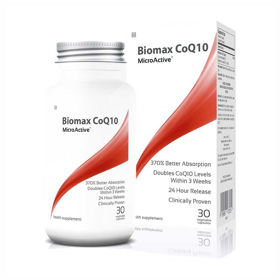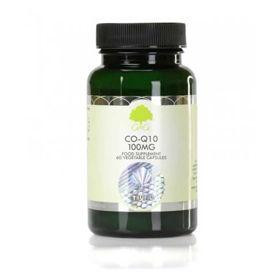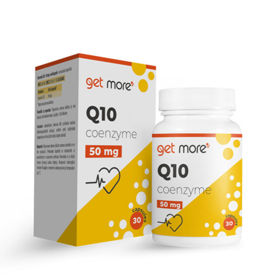Customer question:
Is coenzyme Q10 naturally found in the body? Anonymous customer's question
Pharmacist's answer:
Yes, coenzyme Q10 is a molecule that occurs naturally in the body and plays a key role in the production of energy in cells. This compound is present in the cells of almost all organs, especially in the heart, liver, kidneys and muscles.
Coenzyme Q10, also known as ubiquinone, is an antioxidant that helps protect cells from the harmful effects of free radicals and maintains their health. In addition, it is a key factor in the production process of ATP (adenosine triphosphate), which is the basic fuel for cell function. Although coenzyme Q10 is naturally produced in the body, its levels can decrease due to various factors such as aging, unhealthy diet, stress, diseases and certain medications.
When to decide to add a coenzyme with the help of food supplements?
The decision to add coenzyme Q10 with the help of food supplements can make sense in many cases, especially when there is a deficiency of this compound or when there are special medical needs. Over the years, the body's natural production of coenzyme Q10 can decrease. Supplementing with coenzyme Q10 can help compensate for this deficiency and support overall health and vitality.
For whom is the most suitable supplement with coenzyme Q10?
With age, the production of coenzyme Q10 in the body can decrease. Supplementing with coenzyme Q10 can help older adults maintain overall health, energy levels, and vitality. Statins, cholesterol-lowering drugs, can also reduce the body's natural production of coenzyme Q10. Supplementing with coenzyme Q10 can help compensate for this deficiency and reduce the unwanted side effects of statins. Athletes and active individuals can also benefit from additional coenzyme Q10.
Which food naturally contains coenzyme Q10?
Coenzyme Q10 is found naturally in some foods, although the levels in these foods are usually low compared to the concentration found in dietary supplements. Among the richest sources of coenzyme Q10 are:
- fish and seafood,
- pork, beef and poultry,
- vegetable oils,
- nuts and seeds,
- vegetables and
- fruit.
Although these sources may contain some coenzyme Q10, the content of this compound in foods is usually quite low. Therefore, people who want to increase their intake of coenzyme Q10 often decide to add nutritional supplements.
Interesting reading: Rosemary oil Pharmacy













